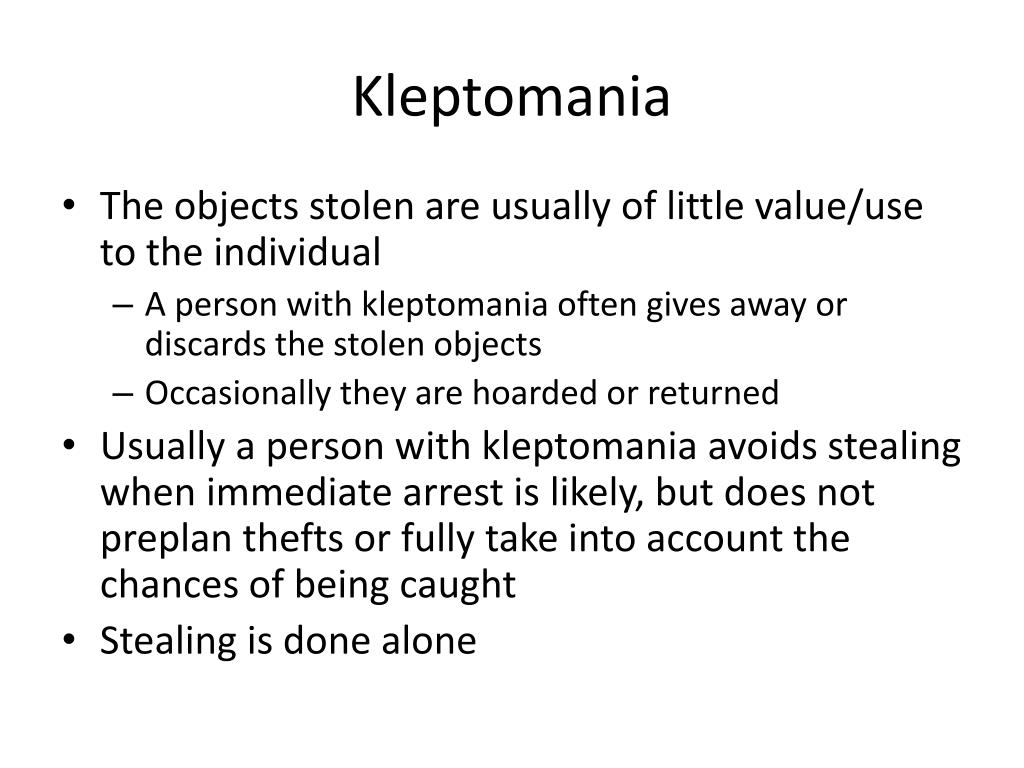


Eating disorders and kleptomania manual#
As noted in Diagnostic and Statistical Manual of Mental Disorders, kleptomania is exceedingly rare, whereas shoplifting is relatively common. The frontal lobe of the brain is thought to provide impulse control. Four types of eating disorders that are common amongst teenagers are anorexia nervosa, bulimia nervosa, binge eating disorder, and body dysmorphic disorder. The key feature of kleptomania is the repeatedly acting on impulses to steal items even though the items are not needed. Other evidence suggests kleptomania may be more closely related to, or be a variant of, mood disorders such as depression. A review of research on Kleptomania the syndrome of compulsive stealing suggests that kleptomania may be a common disorder, especially among women. Psychological disorders are sometimes the result of chemical imbalances in the brain. Some clinicians see kleptomania as part of the obsessive-compulsive spectrum of disorders, because many people experience the impulse to steal as an unwanted intrusion into their minds. Kleptomania And Eating Disorders If you have an eating disorder, are you likely to shoplift Or if you shoplift, are you at a greater risk for an eating disorder Or is there no connection at all Scientists aren’t sure, but there is some anecdotal evidence that there may be a connection. People with kleptomania often also live with another psychiatric disorder, such as depressive or bipolar disorders (particularly major depressive disorder), anxiety disorders, eating disorders (particularly bulimia), personality disorders, substance abuse disorders (particularly alcohol use disorder), and other impulse-control and conduct disorders. diagnosed with eating disorders according to DSM-IVcrite ria 2) a PCG group-femalepatients with otherpsychiatric disorders who do notmeet criteria for diagnosis ofan eating disorder and 3) a nonpsychiatric undergraduate control group (UCG)-womenwithoutpsychiatric disorders.

Individuals may also experience an imbalance in the brain’s opioid system, which influences the ability to resist urges. According to the DSM-5, kleptomania appears to be caused in part by disruptions of neurotransmitter pathways in the brain associated with serotonin and dopamine, which can influence aggression and the brain’s reward system.


 0 kommentar(er)
0 kommentar(er)
